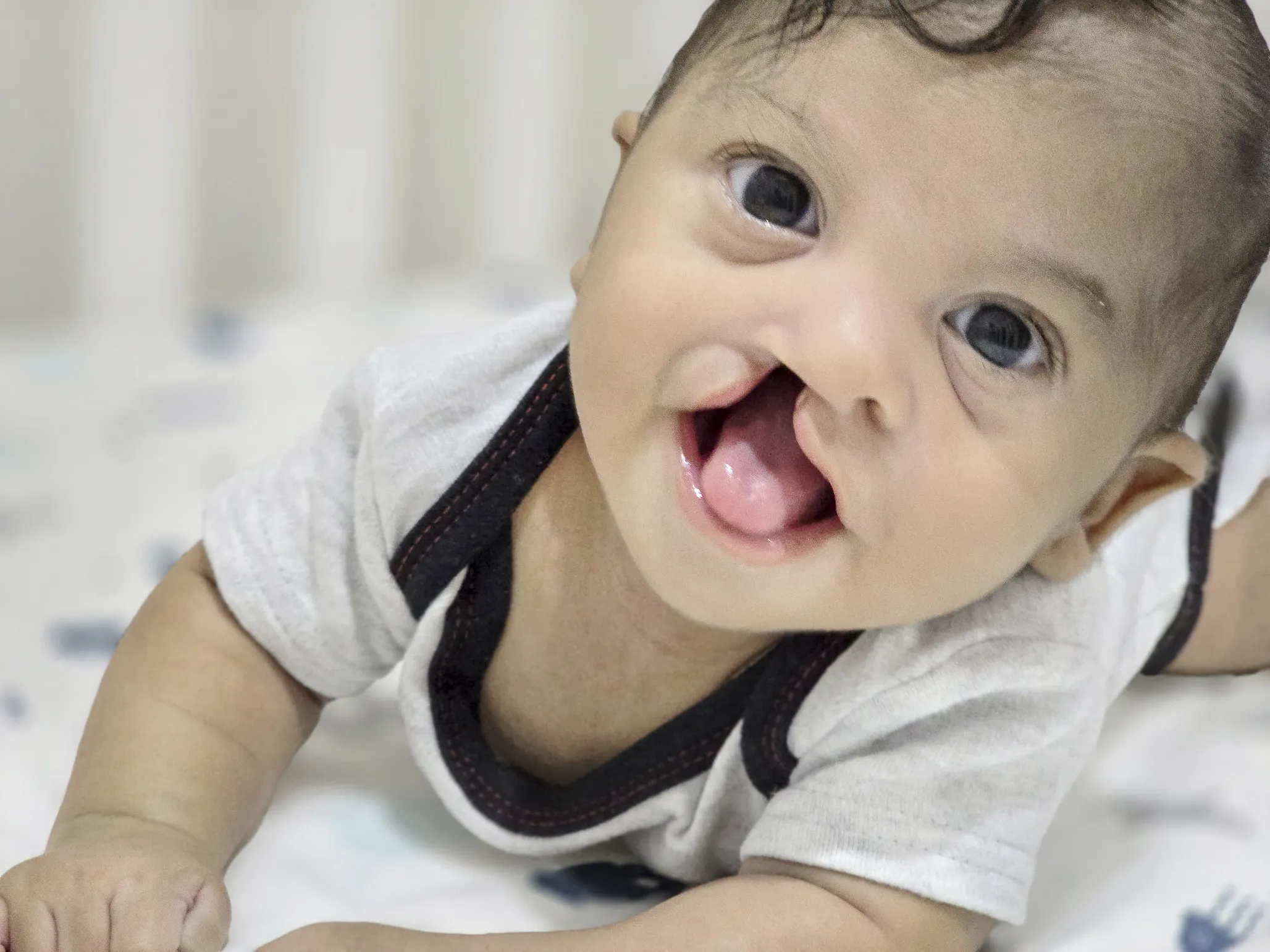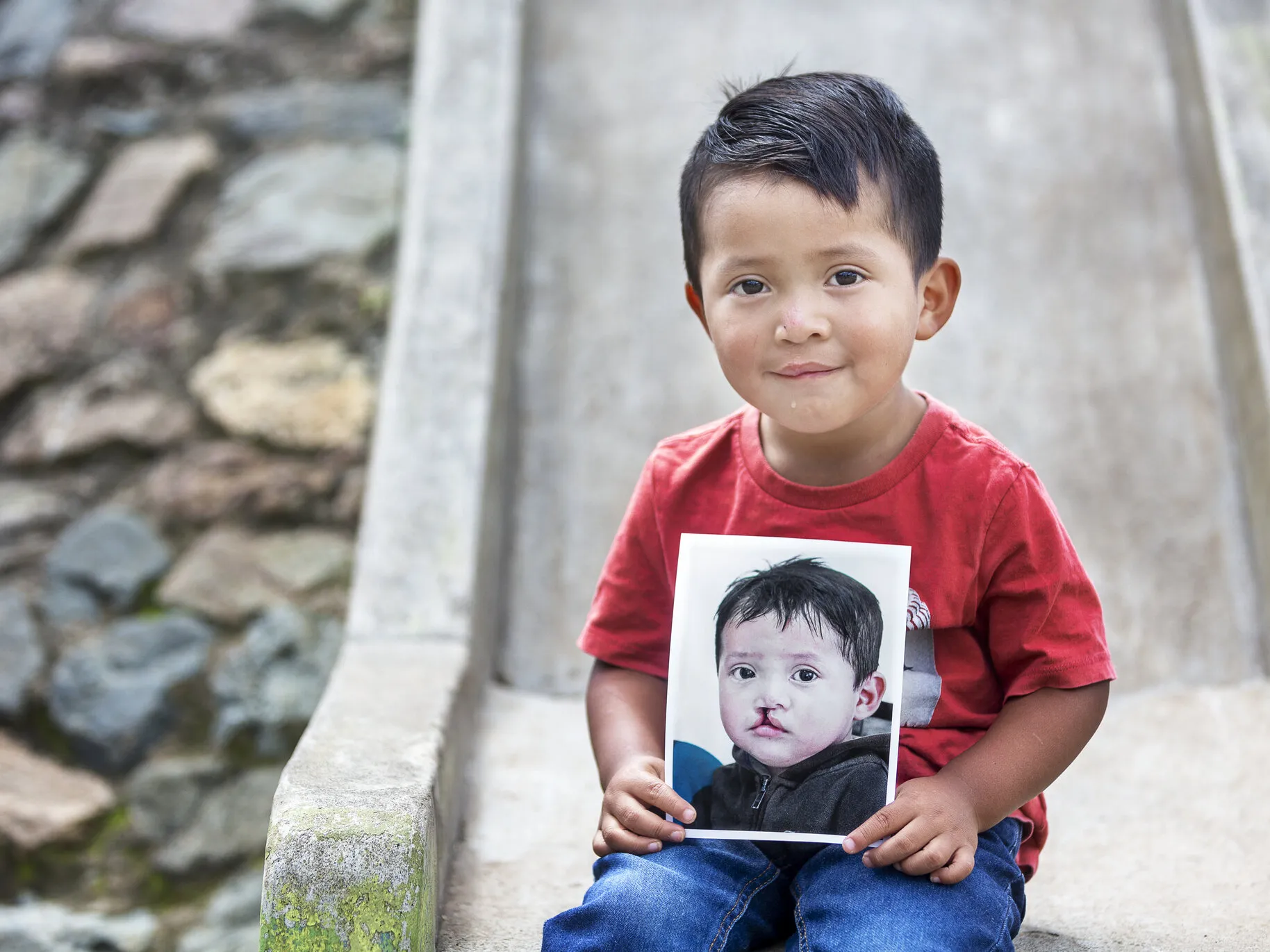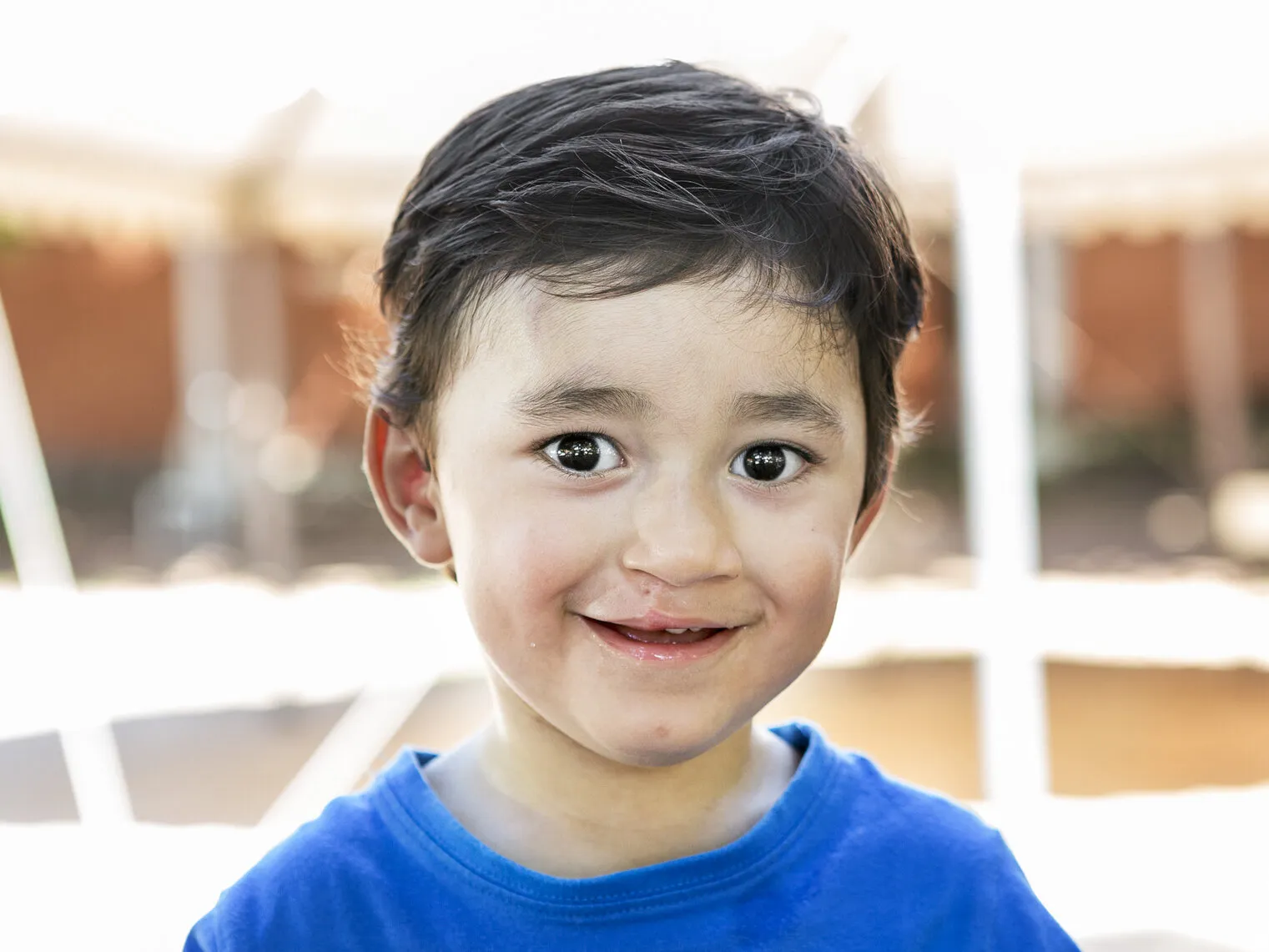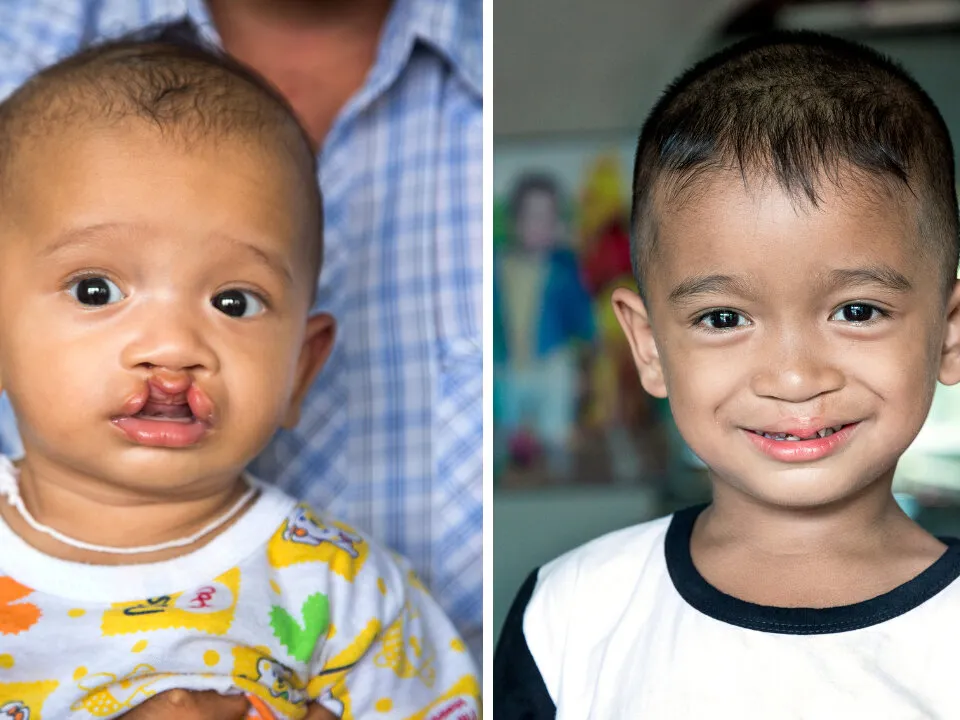Patients
Pre-Surgical Dental Care Saved Janat’s Life

After seeing an Operation Smile Morocco commercial, Fatima learned that the organization not only provides free surgical care, but that there was an upcoming surgical program taking place in a little over a week in Oujda, a neighboring city.
Overjoyed to learn there were skilled people devoted to caring for children with cleft conditions, Fatima and her husband prepared to make the journey, hoping that it wasn’t too late for 1-month-old Janat, who’d already lost nearly half of her birth weight.
Alongside hundreds of families seeking out care from Operation Smile Morocco’s highly trained medical professionals, Janat and her parents arrived in Oujda for screening day fully prepared to do whatever they could to save her life.
It was a long and grueling day for the family as volunteer pediatricians, anesthesiologists, nurses and other specialties assessed Janat’s health throughout the screening process.
It quickly became clear to the volunteer team that Janat wouldn’t pass her comprehensive health evaluation.
Having been unable to eat properly for the first month of her life, Janat had become severely malnourished and wasn’t healthy enough for safe surgery.
Just as Fatima started to think that they’d return home without a solution, the team of volunteer dentists onsite sprang into action.
Joining forces with Operation Smile Morocco staff, Drs. Carmen Kamas-Weiting of the U.S. and Teresita Pannaci of Venezuela stepped in, quickly transporting Janat and her family to the local care center.
“I was so happy,” Fatima said while surrounded by the dental team preparing to fit Janat with a feeding plate. “I’m happy that, finally, she will receive help.”
With a cleft palate – a gap in the roof the mouth – patients struggle to eat or drink because milk oftentimes spills out of their nose or causes them to choke, making it almost impossible to obtain the necessary amount of nutrition needed to thrive and gain weight.
Having a cleft palate also makes patients vulnerable to illness, as they are more susceptible to infection, disease and even death.
To protect patients like Janat from the dangers of malnourishment – dangers that can prevent them from receiving the timely cleft surgery they need – dentists like Teresita and Carmen rely on pre-surgical dental care like feeding plates.

The plates serve as the first step toward surgery, leading patients away from starvation and guiding them toward a healthier life – toward surgery.
“A baby with a cleft palate can’t eat,” Teresita said. “That’s why it’s so important to rehabilitate the function of breathing, sucking and swallowing food so that the child is eating in the home environment. This is the real reason why treatment must be done from birth.”
Patiently waiting for the dentists to create the plate, Fatima shared with the team that Janat could only manage to consume around three ounces of milk throughout an entire day. This amount is dangerously lower than the recommended two to three ounces of milk newborns are expected to consume every few hours.
With the feeding plate, the process of eating for Janat was transformed.
After testing out her new plate for the first time, Janat drank two and a half ounces of milk in less than eight minutes.
“I started to feel calm; [the plate] was working,” Teresita said. “I looked at her mother, and that’s when I saw she had tears in her eyes. When I asked, ‘Why are you crying? What kind of tears are these?’ She said, ‘They are tears of happiness,’ because she knew that her daughter was safe.”
Fatima, filled with relief, revealed that it was the first time she’d ever seen Janat drink without suffocating.
“I was so happy. I was so relieved,” she said. “I’m very grateful for what you’ve done for my daughter. I’ve never seen kind hearts like yours before.”
Fatima and Janat returned to the care center once more during the program before heading home. Adapting well to her new feeding plate, Janat slept comfortably in her mother’s arms with a belly full of milk for the second say in a row.

Drinking a few ounces of milk may seem insignificant, but the plate also enables patients to reach even larger milestones: improving nutrition, achieving and maintaining weight for surgery, breathing easier for a better quality of life, lessening the severity of the cleft palate as well as improving jaw and nose development.
While Janat didn’t receive surgery during the March Oujda program, Fatima’s determination was stronger than ever before, and she planned to return to center on an ongoing basis to allow for volunteers to monitor Janat’s care and progress.
Janat’s journey so far has been filled with fear, uncertainty and seemingly impossible obstacles. But no matter what lies ahead, Fatima refuses to give up.
“Nothing is too hard when it comes to my daughter. I will do anything.”
Shortly after the conclusion of the March surgical program in Oujda, Operation Smile Morocco, like all of our teams around the world, made the decision to postpone future programs and care delivery at care centers. While the decision was made to ensure the safety of patients, families, volunteers and staff, the postponements left people like Janat and Fatima waiting.
Thankfully, through closely following all health ministry guidelines and protocols, including mask-wearing, social distancing, temperature screenings and more, the Moroccan team has successfully reopened its care center doors, allowing for waiting patients like Janat to return and continue their ongoing care.
Today, Janat is 10 months old and her condition has dramatically improved.
Through her family’s commitment to improving her health and the success of her feeding plate, Janat’s weight has significantly increased and she continues to show incredible developmental progress. To this day, Fatima remains hopeful for Janat’s continued improvement.
“My daughter will be OK. I’m happy now,” she said. “Surgery will be life-changing. In the future, Janat will get an education.”













